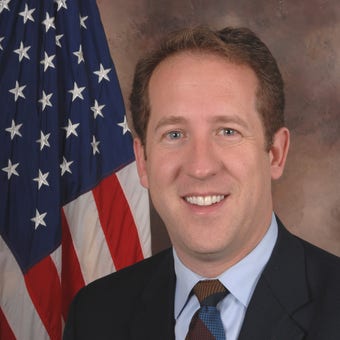Novavax CEO says COVID-19 vaccine will roll out 'very quickly'
Novavax President and CEO Stanley Erck on its' vaccine being 90.4% effective in a clinical trial and and why the booster shot will be its' 'biggest market' in the U.S.
Last year, while COVID-19 caused much of our economy to shut down, scientists around the world continued, full speed ahead, to develop vaccines for a virus that had emerged only months earlier.
Taxpayer investment supplemented this work, and agencies like the U.S. Food and Drug Administration worked to ensure vaccines were effective in the timeliest way possible. The pace at which vaccines were developed and brought to market is a testament to the ingenuity and innovation of our pharmaceutical industry.
DEROY MURDOCK: DEMS' ELECTRIC CAR DREAMS RUNNING LOW ON BATTERY
These vaccines were made possible in part because innovative companies invested tremendous resources into intellectual property (IP) development prior to the onset of the pandemic. They made these investments with the expectation that strong IP protections in the United States and around the world, known as the World Trade Organization’s Trade-Related Aspects of Intellectual Property (TRIPS) agreement, would safeguard their work once the vaccines came to market.
The property rights that pharmaceutical manufacturers hold when they develop life-saving therapeutics and vaccines are protected by the TRIPS agreement, under which WTO Members agree to respect basic IP rights except in limited circumstances. Included among those circumstances are national emergencies like the COVID-19 pandemic.
More from Opinion
While the TRIPS agreement allows governments to compel pharmaceutical producers to license their products during such emergencies, it requires them to first try to reach agreement with the producers on licensing terms. When such an agreement cannot be reached, it requires WTO Members to provide producers with adequate compensation.
Unfortunately, the Biden Administration undermined trade and IP policy when it supported South Africa's and India’s request for a waiver from the TRIPS agreement. Weakening IP protections sends the wrong signal to innovators and could have negative consequences for future responses to health crises. The European Union, United Kingdom, Germany, and Japan have all expressed grave concern for the adverse impact a TRIPS waiver would have on innovation incentives, drug quality, and safety moving forward.
CLICK HERE TO GET THE OPINION NEWSLETTER
Suspending IP obligations allows countries to authorize and manufacture COVID-19 vaccines and technologies without the same oversight and regulations as the U.S. This could create unsafe or unsuccessful vaccines.
A TRIPS waiver is not the quick fix for a healthy, healing world. We know that America cannot fully recover from the pandemic unless the world recovers with us. However, intricate global production capacity and distribution problems will not be eliminated by the forced transfer of patented vaccine technologies.
CLICK HERE TO GET THE FOX NEWS APP
Instead, we must partner with our pharmaceutical innovators and allies to develop a global vaccination strategy. As we move forward, we must strive to increase access to COVID-19 vaccines by removing existing regulatory barriers and promoting effective vaccine diplomacy, while still protecting American innovation and IP rights.






















